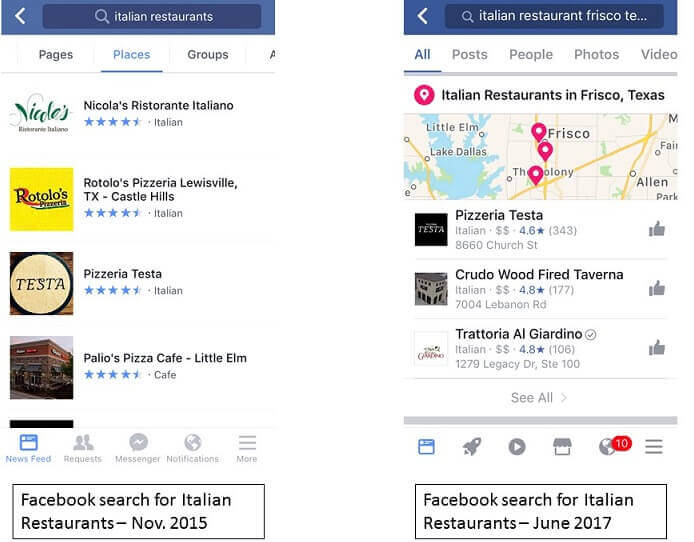If you’re wondering where you can find the best burger in town, you are probably thinking, “Google it”. A quick search will quickly return a map with your location and the precise location of the best burgers around you. Your results are different than mine because of Google’s push for hyper-local search results. This is what Google does best. Give you the information that is accurate and most relevant to you, because there might be a better burger one state over but that doesn’t do you much good.
No one says “Bing it”, “Yahoo it”, and certainly not “Ask Jeeves it”. The only company strong enough to become a verb so far is Google. That might not last long though, Facebook is positioning itself to be a contender in the hyper-local search arena. The searchers of tomorrow may be thinking I’ll, “Facebook it”.
If you own a business your ears should be perking up right now. If you are trying to direct clients and customers to your business, you NEED to have your website optimized for hyper-local searches in Google. Your business NEEDS to be on Facebook because these are the places people are looking for you.
Does your company have a verified Google My Business Listing? Is your Facebook business page verified and displaying your correct address? If not, you are missing out on business!
7 changes by Facebook that make it a real local search player
Columnist Wesley Young looks at recent improvements Facebook has made — and functionality being tested — that may position the social media giant to compete with Google in the area of local search.

1. Facebook is using location much more effectively
Location is at the heart of local search, as reflected by Google’s emphasis on proximity and physical address in ranking local search results. Facebook now prominently highlights maps and directions at the top of local business pages on both the Home page and the About page.
Many searches from the top search box also automatically return results based on the user’s location – truly local search results. In earlier test searches, when location was not specified in a general search for “Italian restaurants,” I received results from India and New York. Today, only restaurant listings within two miles of me are listed, and the results include an address and map location. Clicking through to see all results opens the Places tab and provides more results all within three miles.
Below is a comparison of screen shots from November 2015 and June 2017 of results for Italian restaurants in Frisco. This illustrates the difference location information makes to a listing.

2. Places is given priority
Not only is location being used more effectively, but places are given much higher priority. Previously, the functionality of the Places tab was sorely lacking, indicating the low priority Facebook had assigned it. In my earlier test, a search for “Lawyers in Frisco” returned only one result: Tupy’s. If Tupy was once a lawyer, he answered a greater calling: He’s been serving tasty Mexican food in the Dallas area for over 60 years.
Facebook Places today is not only highly functional, it is the first information provided when relevant (i.e., when a search is made that implies a place or local business). For example, a search for “Texas Beaches” or “Plumbing services” returned Places results at the top, followed by pages of local businesses. And Facebook recognizes when location is not relevant — a search for “Wonder Woman movie” returned videos, news and a Wikipedia page.
3. Search results are much more robust and complete
The single non-relevant result in the search for lawyers described above was a common problem with many searches 18 months ago. That search for lawyers in Frisco today? It now returns 48 results of attorneys and law firms within 4.5 miles.
The results are not only much deeper, but they provide more valuable information. The lawyer listings show profile pictures, address, distance from me, whether it is still open, and star rating. The listings even describe what type of law the firm or attorney practices, such as family law, criminal law or estate planning.
See the rest of the changes at SearchEngineLand.com

0 Comments